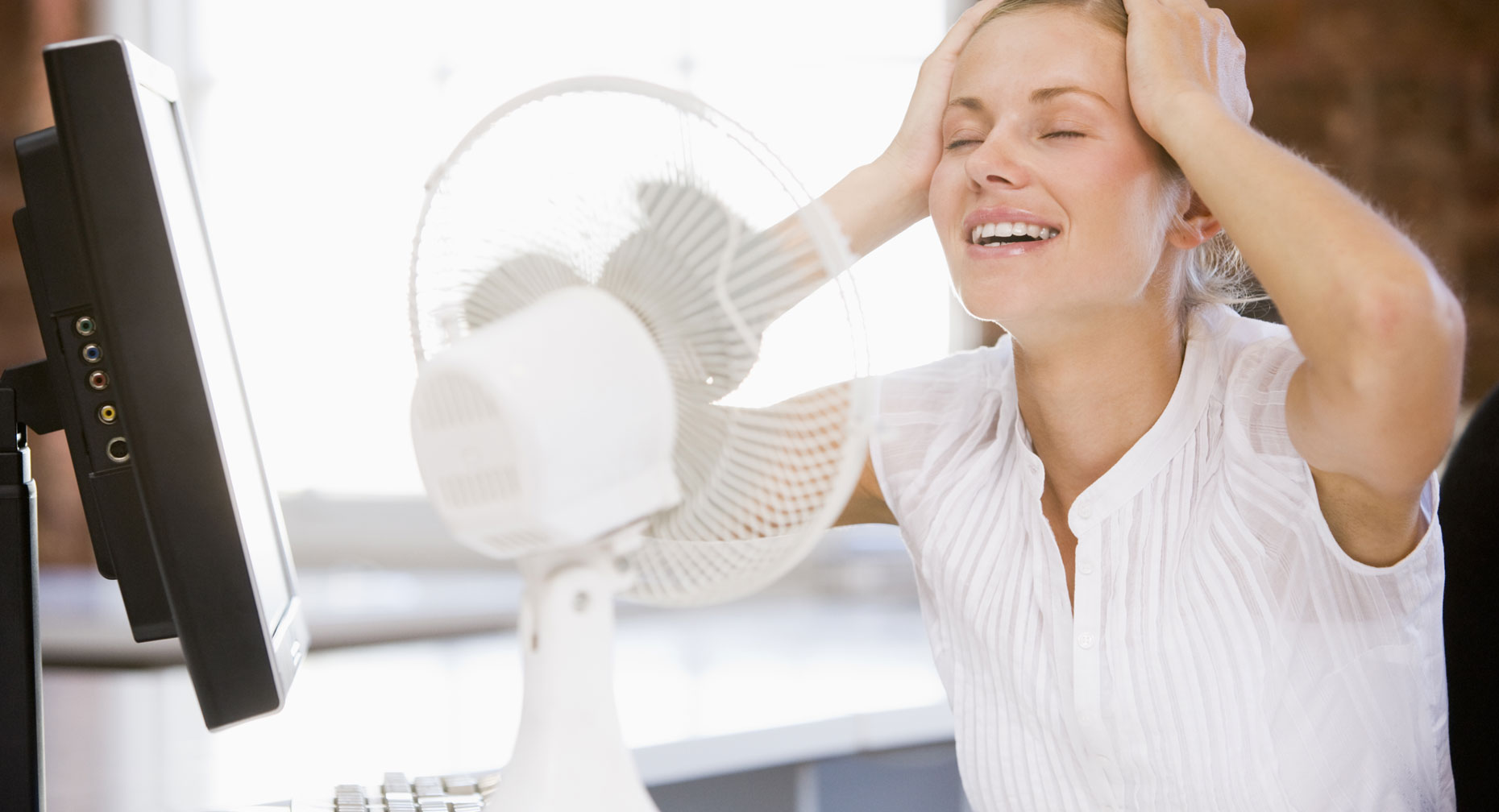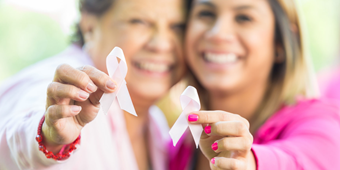Cool Those Hot Flashes

Find Your Perfect Match
Answer a few questions and we'll provide you with a list of primary care providers that best fit your needs.
You’ve been hearing about them for years from your mom and friends, hardly taking note. But now, it’s happening to you – the dreaded hot flashes.
You’re in good company. According to the North American Menopause Society (NAMS), about 75 percent of American women have hot flashes during perimenopause (the years leading up to your final period). Nearly a quarter of these women experience enough discomfort to seek relief from their health care providers.
They usually follow a consistent pattern unique to each woman.
For most women, hot flashes last for six months to two years. However, they can linger for as much as ten years. Some women have a recurrence even 10 years after they begin menopause (the end of your monthly periods).
Experts don’t fully understand the exact cause of hot flashes but do suspect that the brain’s hypothalamus is the culprit. This part of the brain regulates body temperature. When estrogen levels drop as a women ages, it can mistakenly sense that you’re too warm and start a chain of events to cool you down. And the hot flashes begin with dilated blood vessels (resulting in a red, flushed face and neck), perspiration, a more rapid heartbeat and even a post-hot-flash cold chill.
Am I Having a Hot Flash?
Hot flash symptoms vary from woman to woman as do tolerance levels. But they usually follow a consistent pattern unique to each woman and typically produce feelings of extreme heat.
Sometimes, it can be tough to tell if what you’re experiencing is really a hot flash. An unusually warm room, sleeping with too many blankets or using a heating pad can cause your body to feel hotter than normal.
Certain conditions (e.g., thyroid disease, eating disorders and infection) and drug therapies also can cause hot flashes. Taking a look at your overall health may help you determine if your symptoms are related to menopause.
Tips for Handling Hot Flashes
Talk to your doctor as soon as you begin having hot flashes so you can evaluate them together, especially as your symptoms change. These strategies may help if your symptoms are mild to moderate:
- Keep a diary (or symptom journal) to track each hot flash. This may help you identify patterns and triggers.
- Avoid possible triggers such as spicy foods, alcohol, caffeine, stress or being in a hot place.
- Dress in layers.
- Use a fan in your home or workplace.
- Take slow, deep breaths as soon as a hot flash starts.
For hot flashes occurring during sleep (night sweats), try these tactics:
- Dress in light night clothes
- Use layered bedding
- Use a fan near your bed
- Sip cool water
- Put a cold pack under your pillow (turning often) or at your feet
Help for More Severe Symptoms
Some hot flashes become so annoying, embarrassing or even debilitating that you may need medications or other therapies to find relief.
- Low-dose oral contraceptives (birth control pills) – If you’re in perimenopause, your doctor might consider prescribing a low-dose oral contraceptive to help with symptoms.
- Non-hormone prescription drugs – Sometimes, drugs used for other conditions – epilepsy, depression, sleep problems, high blood pressure – may help.
- Menopausal hormone therapy (MHT) – Formerly called hormone replacement therapy, MHT can be helpful in relieving moderate to severe symptoms.
- Dietary supplements and herbal therapies – Because these don’t undergo the standard U.S. Food and Drug Administration regulations that prescription and over-the-counter medications do, the NAMS advises women to seek such remedies under the supervision of their health care provider. Keep in mind that some of these therapies can interact with your prescription drugs.
Talk to your doctor about the possible risks, side effects and benefits so you can decide what’s right for you. Doctors consider many factors when prescribing MHT, including your age, overall health, and your risk for heart disease, blood clots or cancer.
Hot flashes and happiness can coexist. By paying attention to your body and keeping your doctor informed, you can prevent symptoms from interfering with all that is good in your life.
Find Your Perfect Match
Answer a few questions and we'll provide you with a list of primary care providers that best fit your needs.
Source: Office on Women’s Health, U.S. Department of Health and Human Services; The North American Menopause Society; Healthline.com




